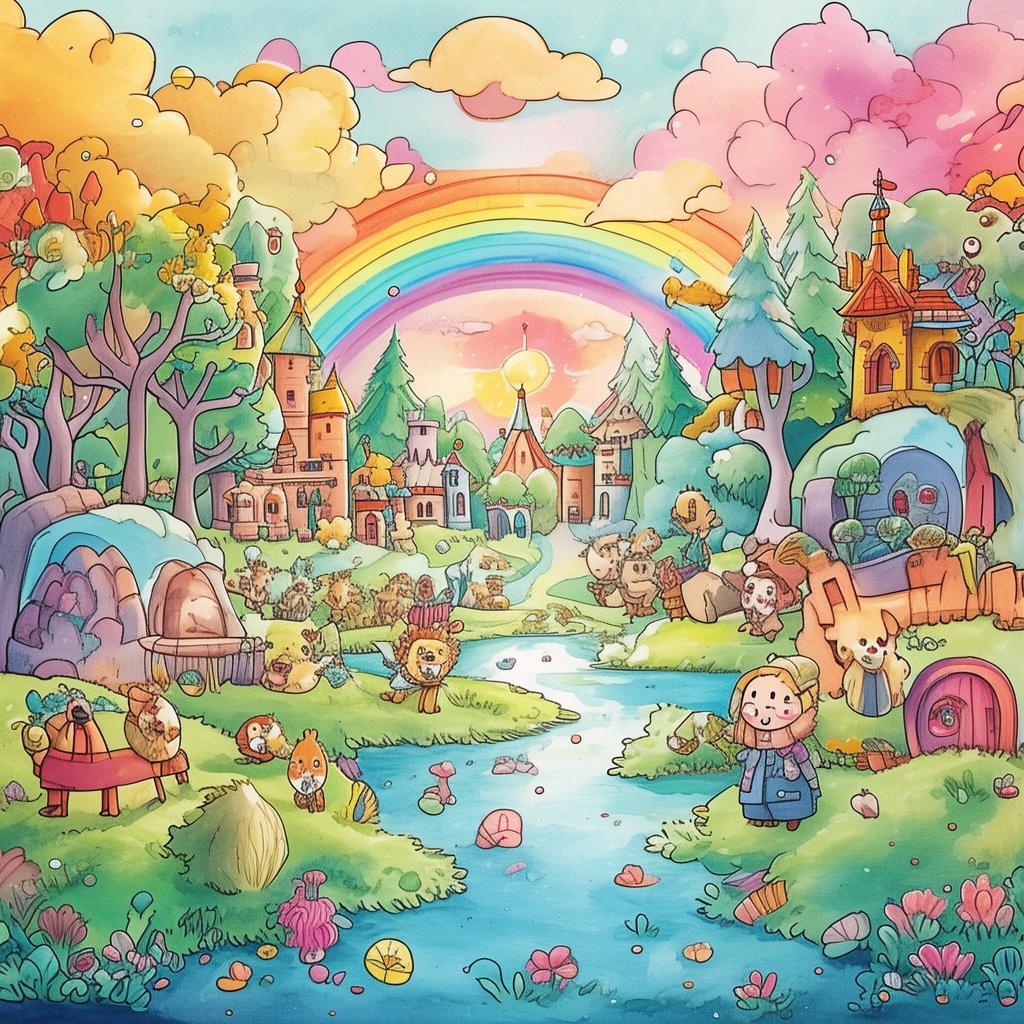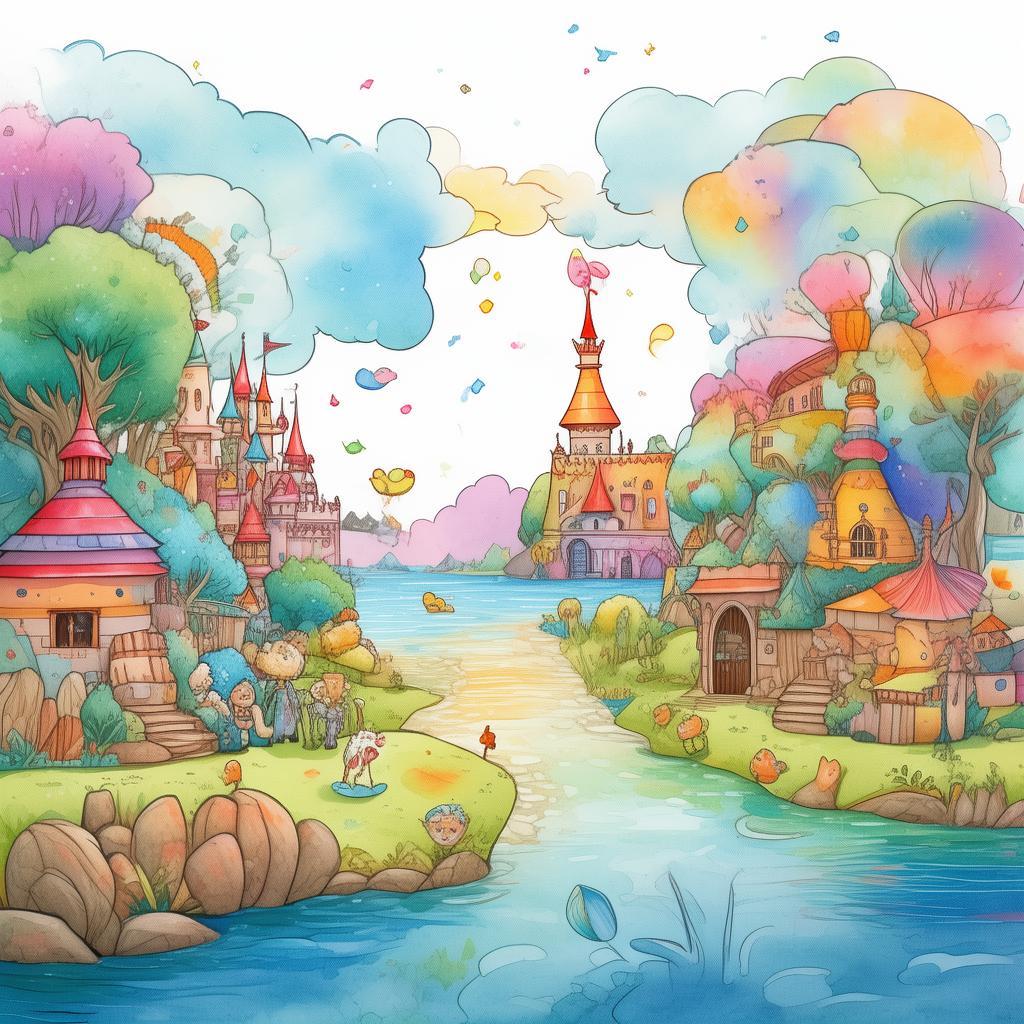The Enlightenment Echoes of a False Alarm
In the quaint village of Lumina, nestled between rolling hills and whispering forests, there lived a boy named Leo. Leo was not an ordinary boy; he was a beacon of curiosity and a sponge for knowledge. The Age of Enlightenment had swept through Lumina, and its spirit of reason and inquiry was as prevalent as the morning dew on the grass.
Leo's father, a wise and learned man, often spoke of the Enlightenment's values, emphasizing the importance of truth and honesty. "Leo," he would say, "in this age of reason, we must always speak the truth, for it is the foundation of trust and respect."
One sunny afternoon, as the villagers gathered in the central square to discuss the latest news from the Enlightenment, Leo climbed the hill behind the village, his eyes gleaming with excitement. He had heard tales of a mythical wolf that roamed the forest, and he was determined to uncover the truth.
As he wandered deeper into the woods, Leo's heart raced with anticipation. He imagined the thrill of facing the wolf, the roar of its growl, and the satisfaction of proving the villagers wrong. But as he ventured further, the forest grew quiet, and the mythical wolf remained elusive.
Days turned into weeks, and Leo's tales of the wolf became the talk of the village. The villagers, weary of the boy's exaggerated stories, began to doubt his claims. "Another false alarm," they would mutter, shaking their heads.
One crisp autumn morning, as the leaves danced in the wind, Leo climbed the hill once more. This time, he was determined to find the wolf. As he reached the top, he gasped in horror. Before him, standing on the edge of a clearing, was a magnificent wolf, its eyes gleaming with a fierce intelligence.
Leo's heart pounded with fear, but he knew he had to act. He turned and ran, his voice echoing through the forest, "Wolf! A wolf!" The villagers, having grown accustomed to Leo's false alarms, paid him no mind.

As Leo ran, he realized his mistake. The villagers had grown weary of his lies, and his cries of wolf had become a joke. He had betrayed the trust of the very people he sought to protect. The wolf, sensing the opportunity, gave chase.
Leo's legs pumped furiously as he sprinted down the hill, the wolf's growls echoing behind him. The villagers, now aware of the real danger, rushed to his aid. With their combined efforts, they managed to corner the wolf, but not before Leo had learned a valuable lesson.
The villagers gathered around Leo, their expressions a mix of concern and sorrow. "Leo," said the village elder, "you have learned a hard lesson today. Trust is a delicate thing, and once broken, it is difficult to mend."
Leo nodded, his eyes filled with tears. "I understand," he whispered. "I will never lie again."
The villagers, touched by Leo's sincerity, forgave him. They realized that even in the Age of Enlightenment, the heart of a child was still capable of learning and growth.
As the days passed, Leo's story spread far and wide. It became a parable, a tale of the consequences of deceit and the power of truth. And in the village of Lumina, the boy who once cried wolf was remembered not for his lies, but for the wisdom he gained and the trust he earned.
The Enlightenment Echoes of a False Alarm is a story that resonates with the spirit of the Age of Enlightenment, teaching children the value of honesty and the weight of their words. It is a tale that will endure, a reminder that even in a world of reason and inquiry, the heart of a child remains a place of wonder and learning.
✨ Original Statement ✨
All articles published on this website (including but not limited to text, images, videos, and other content) are original or authorized for reposting and are protected by relevant laws. Without the explicit written permission of this website, no individual or organization may copy, modify, repost, or use the content for commercial purposes.
If you need to quote or cooperate, please contact this site for authorization. We reserve the right to pursue legal responsibility for any unauthorized use.
Hereby declared.









